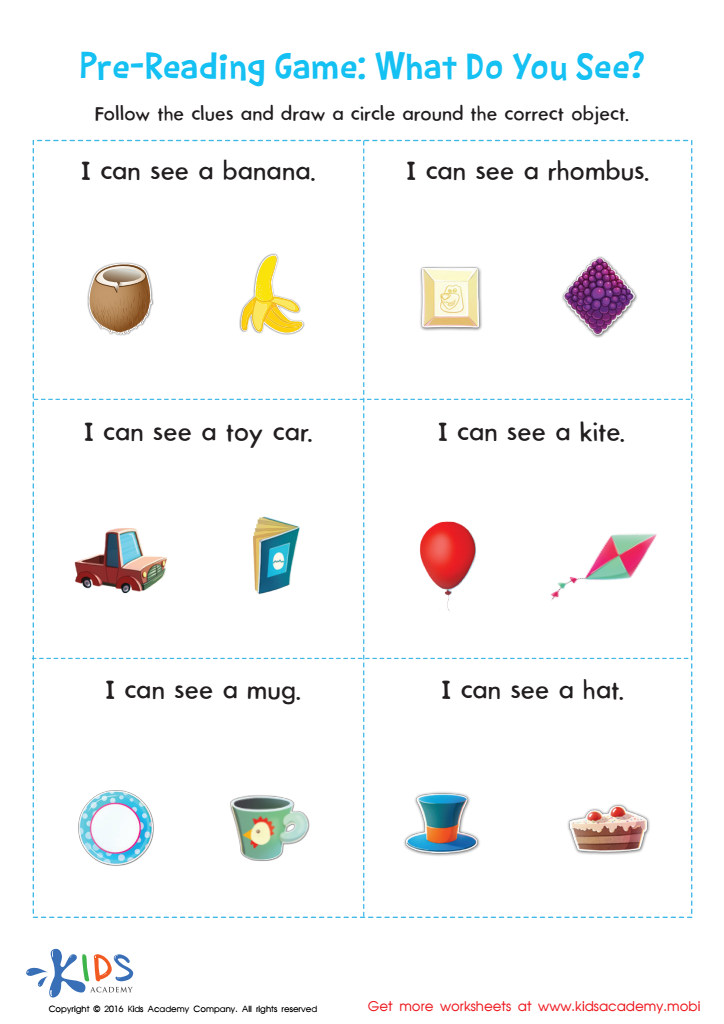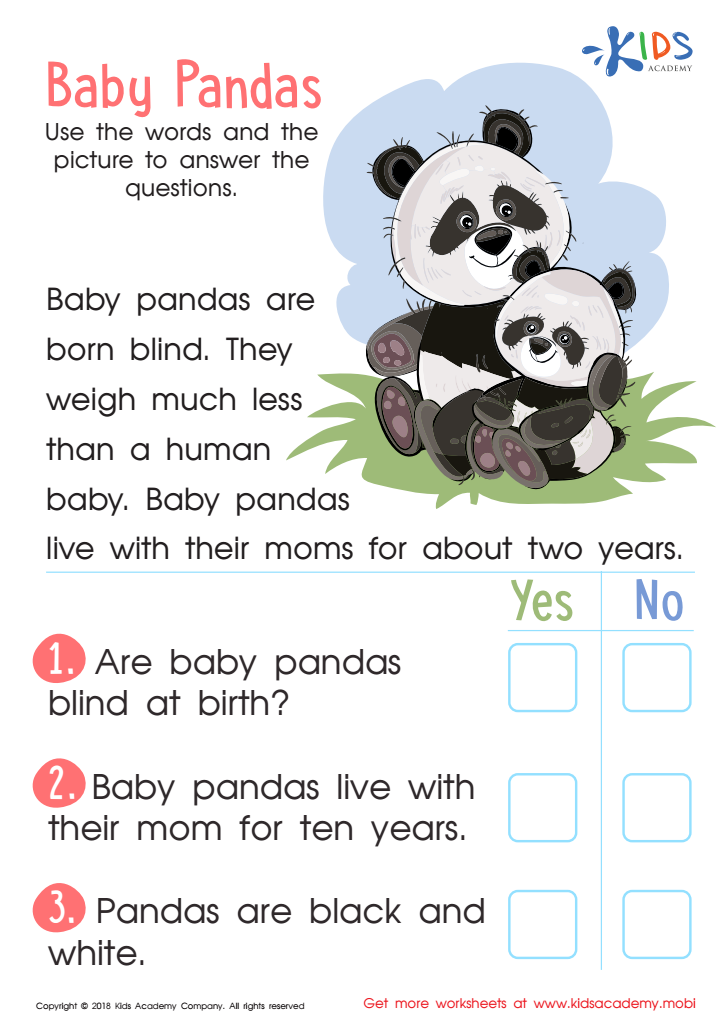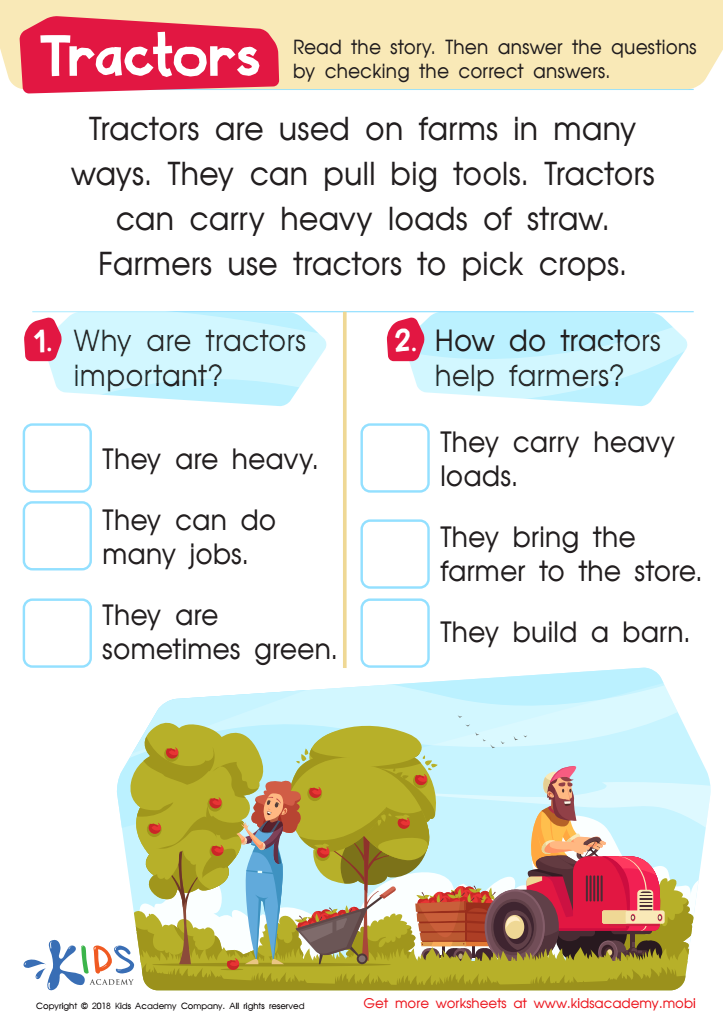Counting practice Reading Non-Fiction Worksheets for Ages 4-6
3 filtered results
-
From - To
Introduce your little learners to the world of numbers and facts with our Counting Practice Reading Non-Fiction Worksheets designed for ages 4-6. These engaging and educational worksheets combine the excitement of non-fiction with counting practice, making learning both fun and effective. Kids will improve their number recognition, counting skills, and understanding of real-world concepts through captivating non-fiction stories. Perfect for early grade readers, our worksheets are crafted to enhance concentration and build a solid foundation in early numeracy and reading comprehension. Empower your child's learning journey today with these expertly designed resources!


Pre–reading Worksheet: What Do You See?


Baby Pandas Worksheet


Tractors Worksheet
Counting practice and reading non-fiction for children aged 4-6 are fundamental aspects of early childhood education that significantly impact cognitive and social development. First, counting practice helps establish foundational math skills, essential for a child’s future academic success. When children practice counting, they learn about numbers, patterns, and relationships, which are key building blocks for more complex math concepts they'll encounter later.
Second, early exposure to non-fiction reading results in numerous benefits that contribute to a well-rounded education. It helps young children develop a better understanding of the world around them by introducing them to real-life information, various cultures, nature, and significant events. Reading non-fiction improves vocabulary, promotes critical thinking, and fosters a curiosity for learning. Children start to distinguish between factual information and imaginative stories, which aids in the development of informational text comprehension skills.
Parents and teachers play crucial roles in this educational phase by providing resources, encouragement, and guidance. Creating engaging and supportive learning environments fosters a love for learning and sets a solid academic foundation. Instilling these foundational skills early on not only prepares children for elementary school but also cultivates lifelong learners with a broad understanding of the world they live in.
 Assign to My Students
Assign to My Students




















